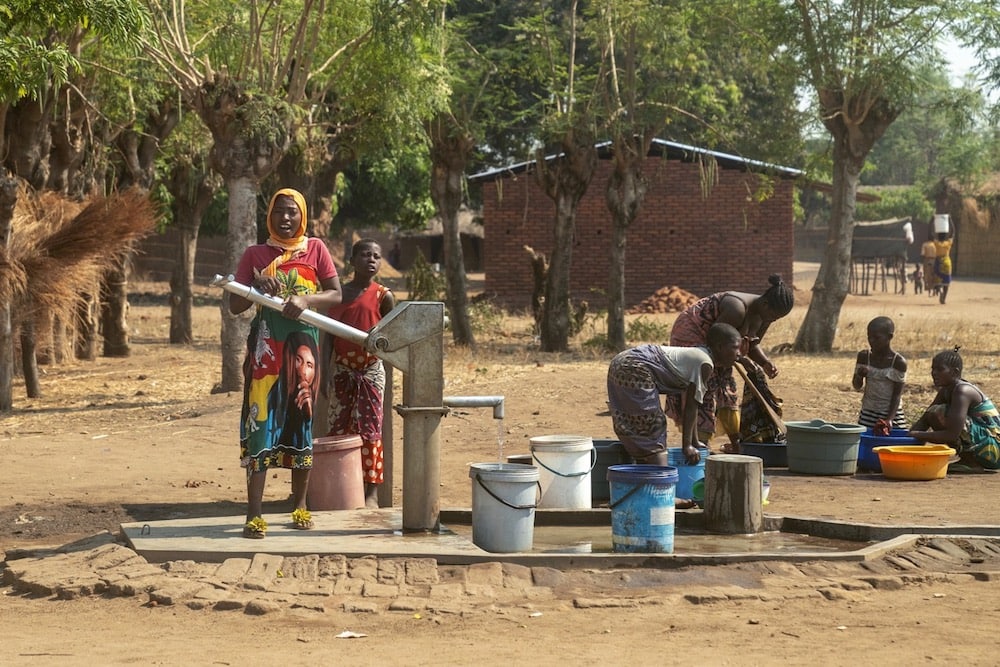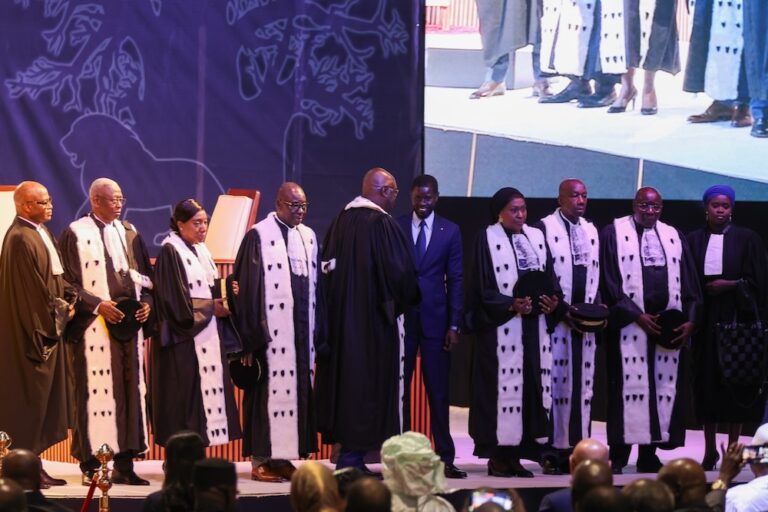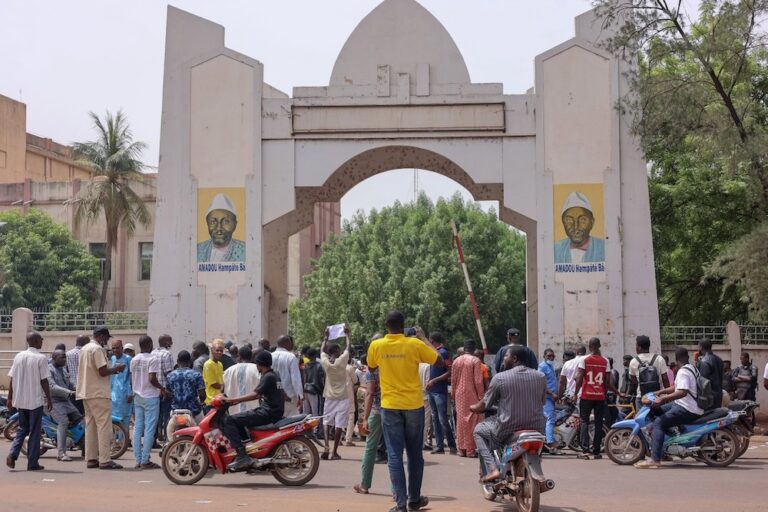Special Issue: Reyhana Masters brings an access to information focus to her latest regional brief, based on IFEX member reports and news from the region.
While it is apparent that access to information has served as a catalyst for various rights, the narrative takes a distinct turn on the Africa continent, where citizens are actively transforming their lives through the recognition that ATI is not a privilege but an inherent right. This month Reyhana Masters explores how the work of IFEX members has contributed to meaningful implementation of access to information laws in various countries.
The African proverb “a tree that bends is not broken by the wind” perfectly captures the notion of how access to information works in Africa. Seen as the ‘mother of all rights’, the branches of the ATI tree have curved in many different directions to support a variety of unique and interesting projects.
From access to information being seen merely as the reserve of the media, communities on the continent have used their rightfully claimed information to clean up their environments, enhance service delivery, claim refunds from companies for shoddy work and even upgrade systems in the education sector.
The Africa Freedom of Information Centre promotes transparency and civic engagement through more open contracting
One of the most visible environmental transformations was that of Malawi’s resort town, Salima. Previously notable for piles of uncollected garbage that resulted in sporadic cholera outbreaks and other infections, the town was restored through an open contracting partnership initiative. The town’s residents and officials now participate in a monthly clean-up campaign, which involves the clearing of bushes and routine garbage collection in town and market areas.
This change was the outcome of training community members on citizen contract monitoring, a project carried out by IFEX member the Africa Freedom of Information Centre (AFIC), a membership-based civil society network and resource centre working in partnership with the Centre for Human Rights and Rehabilitation (CHRR).
Public officials were guided through proactive disclosure practices and response mechanisms for information requests. In a parallel process, civil society organisations were instructed on how to exercise their right to information via Malawi’s Access to Information Act, and more importantly, how to use the accessed information to then constructively engage duty bearers.
“As a result, Salima District Council started disclosing information on revenue and government tenders on its notice boards. According to Salima District Information Officer Ms Christine Musalika, this has become a major source of information for action by citizens, which they actively use to demand for or monitor the implementation of government programmes,” explains AFIC.
This is one aspect of the process of open contracting that AFIC has been working on through their ATI programming, and it is aimed at improving public service delivery and ensuring governments get better value for their money.
It strengthens oversight of government services by having public access to critical information around tenders – who is getting paid, what service or product they are supposed to deliver, as well as how they were selected, and whether they delivered on time.
This can expose anomalies, so public and government officials can easily identify procurement processes that are inefficient or uncompetitive, overdue or too expensive. The process also allows for timely interventions to ensure the service or goods provided are of the standard and description guaranteed in the tender documents.
Subsequently, open contracting can improve value for money, efficiency, competition, quality of services, and public integrity and help identify kickbacks or collusion during the procurement process.
Work elevated through gendered approach
Another dimension to AFIC’s significant work in this area has been their focus on the engendered benefits of open government contracting, which has a two-pronged impact.
Through discussions around gender-responsive public procurement practices, AFIC and the stakeholders in question pave the way for women-owned enterprises to participate more effectively in tender processes which, in turn, can contribute to an increase in the country’s economic growth, greater gender equality, and effective women’s economic empowerment.
The interaction starts with AFIC presenting empirical evidence on the barriers women face in effectively participating in procurement processes. Their research showed that women have to deal with:
- Educational challenges;
- Sexual harassment;
- Sextortion;
- Bureaucratic registration and licensing procedures;
- Delays in payment for services rendered;
- Limited access to financial assistance;
- Institutionalised patriarchy preventing women from participating in decision-making bodies, such as Parliament, civil service and local government, and
- Religious and cultural practices that inhibit women from decision-making processes.
In these dialogues held with women’s groups, government ministries, legislators, non-governmental organizations, relevant business actors and media in various countries, AFIC has managed to get policymakers and stakeholders to advocate for gender responsive procurement procedures, commit to amending the law and report on irregularities around the process.
Based on their enterprising work around open contracting, AFIC was named one of 10 teams selected to rewrite the rules of public procurement to create fair, inclusive and greener communities.
The Media Foundation for West Africa tests – and strengthens – RTI implementation
In Ghana, the work of IFEX member the Media Foundation for West Africa (MFWA) around testing the functionality of the country’s Right to Information Act, 2019 has earned it a citation from the country’s RTI Commission, as well as special mention by the country’s Minister for Information, Kojo Oppong Nkrumah. In his remarks, the minister said:
“Let me commend the civil society organisations in particular that have made it a point to test the system for information at various ministries, departments and agencies (MMDAs), and with your permission let me mention, for example, the Media Foundation for West Africa, The Fourth Estate that have done a lot of these applications.”
His admiration is testimony to the ‘ferris wheel’ manner in which the MFWA has designed its work around RTI, so that that activities by the different units are linked, integrated and continue in a 360-degree sweep.
The manner in which the MFWA programme activities connect to the investigations carried out by The Fourth Estate and then connect to the public and back again to the programming is what deepens the understanding of RTI. This revolving connection of the work also promotes follow-through of practical, solution driven outcomes, and the lessons learned from all these interactions are used to either strengthen or improve existing programme activities.
Their work is carried out at many levels, and includes:
- The setting up of a Citizens’ Access to Information Support Centre – to support anyone, “particularly, the vulnerable and marginalized in society – to request information or appeal a decision using the law”;
- The facilitation of town hall meetings between community members and local government authorities for interactive face-to-face meetings on pertinent developmental issues in their localities. The town hall meetings are broadcast live on partner radio stations, thereby ensuring the discussion reaches a larger audience and is not confined to those that are physically present;
- Conducting research on constraints and barriers to public access to information and ways of removing such barriers to improve public access to governance information, to enhance citizens’ participation in governance and improve responsiveness by authorities;
- Holding capacity-building workshops, for students, journalists, traditional and religious leaders, youth advocates, businessmen and women, teachers and persons with disability, on the utilisation of the RTI Act;
- Forums bringing together high-profile lawyers, journalists, representatives of the government, the media, citizens and other key stakeholders to discuss topical issues such as government efforts to ensure an effective RTI regime; and even
- A survey on the responsiveness of public institutions to information requests.
Through MFWA’s own work and that of The Fourth Estate – its journalism accountability project, which earned executive director, Sulemana Braimah the 2023 Eisenhower Fellows’ Impact Award – MFWA is contributing to good governance and to changes in accessing information, for the public good.
Reporters from The Fourth Estate further used Ghana’s RTI Act to obtain information on whether public officials had complied with the country’s asset declaration requirements. A series of stories revealed that senior government officials, judges, and members of parliament had failed to declare their assets as required by law. A forum convened by MFWA led a group of Ghanaians to file a petition with the Commission for Human Rights and Administrative Justice (CHRAJ) demanding an investigation based on these revelations. The series of reports combined with public pressure pushed 294 public office holders into declaring their assets.
The combined efforts of MFWA and The Fourth Estate have contributed to a reduction of the cost of accessing information held by government and relevant public bodies. The matter of the excessively high fees was taken up with the RTI Commission when the Minerals Commission demanded the equivalent of US$ 1,000 as fees for information thatThe Fourth Estate requested. This was in spite of Ghana’s law stating fees requested for RTI requests should only reflect the cost and time spent reproducing the information.
The investigative unit turned to the RTI Commission for an intervention, and the chief executive officer of the Minerals Commission was ordered to apply “a charge or fee of either 1.80 pesewas (0.08 US cents) multiplied by the number of pages of information to be printed or 1.90 pesewas (0.09 US cents), if the information in its entirety is to be emailed to the Applicant in PDF format”.
Media Rights Agenda reinforces RTI through legal means
Media Rights Agenda (MRA) in Nigeria was at the forefront of the battle to have an FOI (freedom of information) act adopted in Nigeria and is yet another organisation that has been rewarded by the Africa Centre for Development Journalism, for its vigorous effort in advancing the use of the Freedom of Information (FOI) Act for public interest reporting.
From developing a training manual and six sector-specific manuals outlining the effective use of Nigeria’s Freedom of Information Act for civil society organisations, the MRA, has, in recent years, bolstered its ATI work through strategic litigation, compelling government bodies and organisations to provide information in the public interest.
Earlier in the year, MRA challenged the Nigerian Broadcasting Commission’s failure to grant MRA access to information on the 302 broadcasting stations sanctioned by the Commission between September 28, 2022 and January 31, 2023. The court set the hearing for October 2023.
In another instance, the courts gave MRA permission to file a suit against the National Information Technology Development Agency (NITDA) “for refusing to disclose details requested by the organization on its proposed regulatory framework for social media and other online platforms through a Code of Practice for Interactive Computer Service Platforms/Internet Intermediaries.”
The organisation’s work leveraging the court system to push for access to information through the courts has resulted in numerous victories. In June 2023, a federal high court in Abuja ordered the Central Bank of Nigeria (CBN) to provide MRA with the information it had requested in 2020 and to pay N1 million naira (US$1,280) in damages for wrongful denial of access to information.
A force to be reckoned with: the Working Group of the African Platform on Access to Information
All three organisations featured in this article were part of the Working Group of the African Platform on Access to Information – a group of advocates passionate about media freedom and development who believe that every person in Africa should have, and be able to enjoy, the right of access to information. The APAI-WG, along with UNESCO and other like-minded partners, campaigned for the adoption by the UN of a special day commemorating access to information, which the UNESCO General Assembly passed on 15 October, 2019, proclaiming 28 September as the International Day for Universal Access to Information (IDUAI).
Since the adoption of #IDUAI, numerous CSOs on the continent have built on that strong foundation and levelled up their work to ensure that citizens enjoy their right to information. As Zoe Titus, executive director of the Namibia Media Trust emphasizes in the report Pounding Pavements, Knocking on Doors, “Access to information is a citizen’s right, central to their development and informed participation in political life.”



